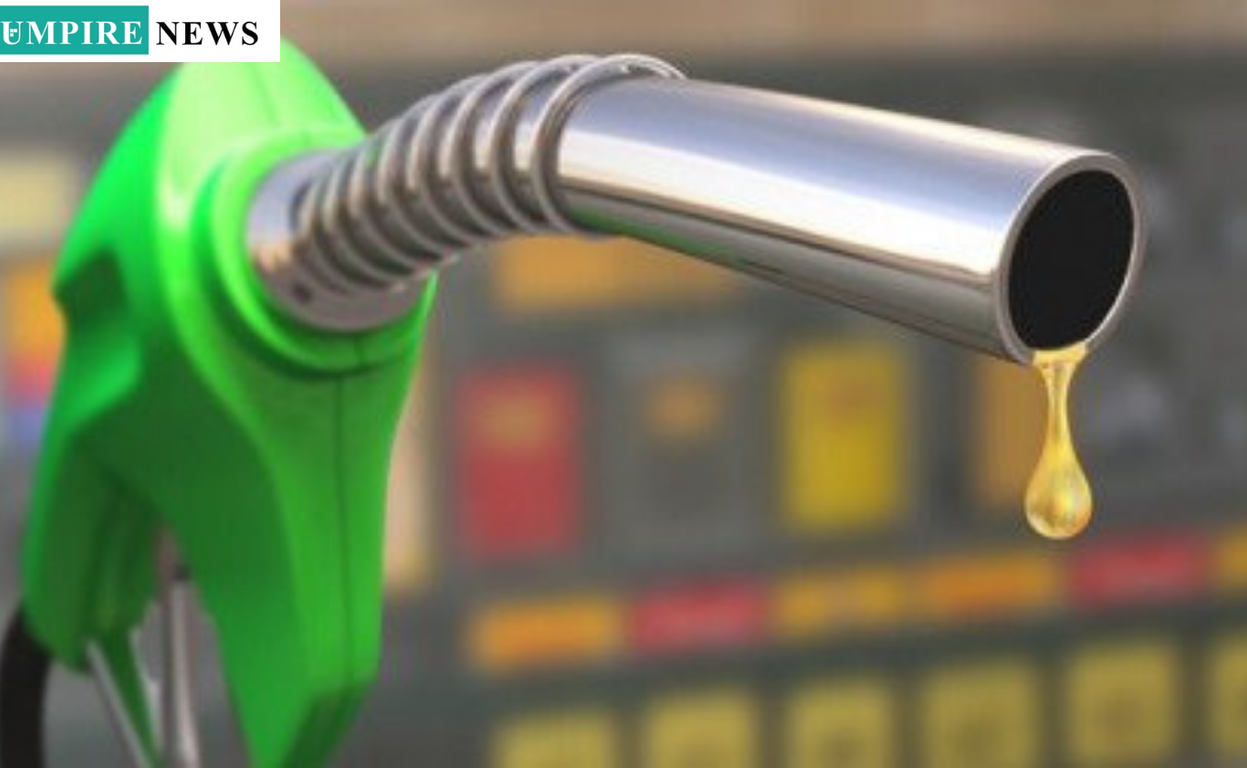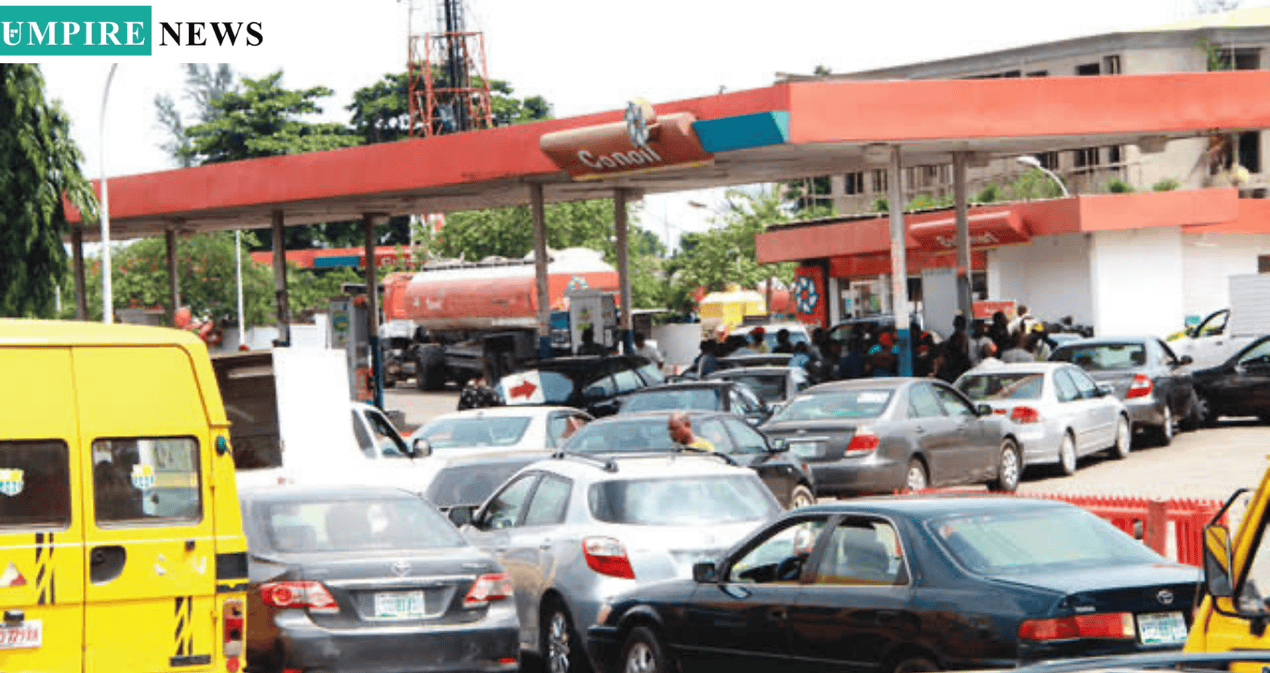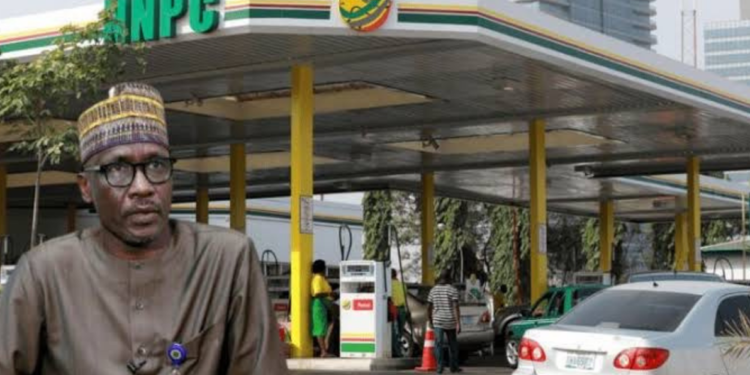Fuel queues have resurfaced across Lagos as a result of a critical increase in petrol prices by the Nigerian National Petroleum Company Ltd. (NNPCL) and other independent marketers.
This development has caused frustration among residents and drivers who have been forced to wait in long lines at filling stations.
Many stations, particularly those located along major routes such as Ikorodu Road, Ikeja, and Bariga, have temporarily closed due to the price hike and difficulties in acquiring fuel.
The latest adjustment has seen NNPCL stations raising their pump prices to N998 per litre, while other marketers are charging even higher rates.
For example, Northwest filling stations are now selling petrol at N1,000 per litre, Hyden Petroleum has set its price at N1,100, and NIPCO is offering fuel at N1,050 per litre.

This price surge marks the third hike in petrol costs within the past two months, a trend that began shortly after petrol purchases from the newly operational Dangote Oil Refinery on the outskirts of Lagos.
The NNPC has incrementally raised petrol prices over the past few months, with the latest hike pushing prices from N855 per litre to N998 in Lagos.
In other parts of the country, particularly in the North-Eastern states, prices have exceeded N1,003 per litre.
This is a stark contrast to the fuel prices of just a few months ago. For instance, on September 3, fuel prices in Lagos, which had been the lowest in the country, rose from N568 per litre to N855, while prices in other regions went from N617 to similar highs.
Energy experts have weighed in on the situation, with many calling for strategic reforms to mitigate the impact of these price hikes.
Ayodele Oni, a well-known energy lawyer and partner at Bloomfield Law Practice, has suggested that the government should focus on fostering competition within the refining sector as a means of addressing the high prices.
He believes that promoting the establishment of modular refineries, alongside the rehabilitation of existing national refining facilities, could help introduce competitive pricing for petrol.
“Increased competition among refiners could lead to better prices for consumers,” he emphasized, highlighting that monopolistic practices within the market can drive up costs unnecessarily.
Oni also pointed to exchange rate fluctuations as a major factor in the rising cost of petrol. Since the petroleum sector operates in a “dollarised” market, the weakening of the naira against the dollar has had a direct impact on fuel prices.
He recommended that the government take short-term measures to stabilize the naira by partially defending it with foreign exchange reserves.
In the longer term, he advised the government to adopt policies that would encourage exports and attract foreign direct investment (FDI), thereby boosting the inflow of dollars into the economy.

This would not only strengthen the naira but also reduce the pressure on import-dependent sectors, such as fuel.
Moreover, Oni suggested that Nigeria should diversify its economy beyond oil dependency by focusing on other industries, such as manufacturing and agriculture.
According to him, a more diversified economy would reduce the nation’s reliance on fuel imports, which are particularly sensitive to global market fluctuations and exchange rate volatility.
Diversification would also provide a buffer against the economic shocks that often result from fuel price increases.
In addition to economic reforms, Oni proposed that the government explore alternative energy sources to help ease the burden of rising fuel prices on citizens. He pointed to compressed natural gas (CNG) as a viable alternative to traditional petrol.
With proper incentives, he argued, the government could encourage vehicle owners to convert their cars to run on CNG. This transition could lower the demand for petrol and reduce its overall price, especially if supported by a robust government policy framework.
Oni also urged the government to introduce mass transit systems across the country, particularly in major urban centers like Lagos, to alleviate the impact of rising fuel prices on the general population.
He noted that efficient mass transit options could reduce the need for private vehicle ownership and lessen the dependency on petrol.
Such systems would offer a cost-effective alternative for daily commuters, thus mitigating the economic strain caused by frequent price hikes.
He further explained that Nigeria is now fully operating under a deregulated fuel regime, which means that fuel prices are determined by market forces such as global oil prices and currency exchange rates.
As a result, fluctuations in the exchange rate between the naira and the dollar have had an impact on the cost of fuel.
The recent spikes in petrol prices, according to Oni, are largely attributable to the weakening of the naira, which has made it more expensive to import petrol into the country.
Despite the challenges, Oni expressed cautious optimism regarding the future of Nigeria’s fuel market.
He mentioned that the crude-for-naira arrangement between the NNPC and Dangote Refinery could play a critical role in stabilizing the naira against the dollar, which, in turn, could help alleviate some of the pricing pressures currently facing the fuel market.
By strengthening the value of the naira, this deal could create a more favorable environment for consumers, as lower exchange rates would reduce the overall cost of importing fuel.
However, in the short term, Nigerians will continue to face high fuel prices, with little relief in sight. As fuel queues persist across Lagos and other parts of the country, there is growing public concern over the impact of these price hikes on daily life and the overall economy.
The situation underscores the need for both immediate and long-term solutions, including exchange rate stabilization, economic diversification, and the development of alternative energy sources, to ensure a more stable and affordable fuel market for all.



































